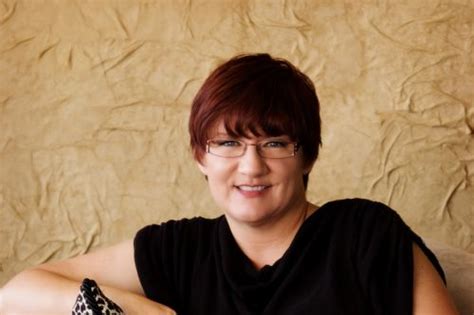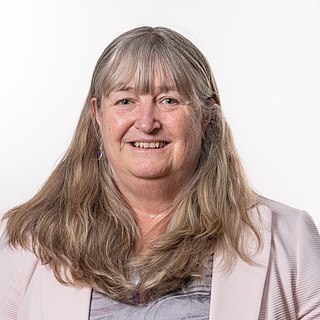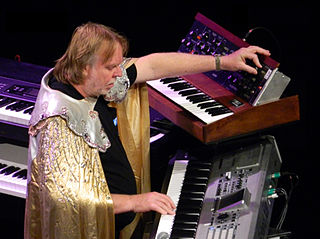A Quote by Amy Tan
And for all those years, we never talked about the disaster at the recital or my terrible accusations afterward at the piano bench. All that remained unchecked, like a betrayal that was now unbreakable. So I never found a way to ask her why she had hoped something so large that failure was inevitable. And even worse, I never asked her what frightened me the most: Why had she given up hope?
Related Quotes
Widowhood provided Mama with a higher form of being. In refusing to recover from my father's death she had discovered that her life was endowed with a seriousness her years in the kitchen had denied her. She remained devoted to this seriousness for thirty years. She never tired of it, never grew bored or restless in its company, found new ways to keep alive the interest it deserved and had so undeniably earned.
Amber, you could never embarrass me." "Never?" she asked. "Never." "One time, I yelled across the store to Mom and asked her if she wanted the regular or the super-absorbent tampons. I added that, according to the box, the super-absorbent were for those heavy days. Then I asked her to rate her heaviness on a scale of one to ten." "Okay, you could." "Then while we were standing in line, I asked her why she was buying three boxes of Summer's Eve in the middle of winter." I set her at arm's length. "Wow." "I know, right? I had no idea a person could turn so red.
She asked him the question she had been asking herself for the past few days. "Why are you being so nice to me now?" J.D. leaned forward in his chair. He gazed directly into her eyes, and Payton suddenly found herself wondering why it had taken him eight years to look at her that way. "Because you're letting me," he said softly.
She didn’t understand why it was happening,” he said. “I had to tell her she would die. Her social worker said I had to tell her. I had to tell her she would die, so I told her she was going to heaven. She asked if I would be there, and I said that I would not, not yet. But eventually, she said, and I promised that yes, of course, very soon. And I told her that in the meantime we had great family up there that would take care of her. And she asked me when I would be there, and I told her soon. Twenty-two years ago.
As he was about to leave, she said, "Murtagh." He paused and turned to regard her. She hesitated for a moment, then mustered her courage and said, "Why?" She though he understood her meaning: Why her? Why save her, and now why try to rescue her? She had guessed at the answer, but she wanted to hear him say it. He stared at her for the longest while, and then, in a low, hard voice, he said, "You know why.
But this was that view of human destiny which she had most passionately hated and rejected: the view that man was ever to be drawn by some vision of the unattainable shining ahead, doomed ever to aspire, but not to achieve. Her life and her values could not bring her to that, she thought; she had never found beauty in longing for the impossible and had never found the possible to be beyond her reach.
Tessa had begun to tremble. This is what she had always wanted someone to say. What she had always, in the darkest corner of her heart, wanted Will to say. Will, the boy who loved the same books she did, the same poetry she did, who made her laugh even when she was furious. And here he was standing in front of her, telling her he loved the words of her heart, the shape of her soul. Telling her something she had never imagined anyone would ever tell her. Telling her something she would never be told again, not in this way. And not by him. And it did not matter. "It's too late", she said.
She felt a stealing sense of fatigue as she walked; the sparkle had died out of her, and the taste of life was stale on her lips. She hardly knew what she had been seeking, or why the failure to find it had so blotted the light from her sky: she was only aware of a vague sense of failure, of an inner isolation deeper than the loneliness about her.
She was beautiful, but not like those girls in the magazines. She was beautiful, for the way she thought. She was beautiful, for the sparkle in her eyes when she talked about something she loved. She was beautiful, for her ability to make other people smile, even if she was sad. No, she wasn't beautiful for something as temporary as her looks. She was beautiful, deep down to her soul. She is beautiful.
Knowing Lissa missed me hurt almost more than if she'd completely written me off. I'd never wanted to hurt her. Even when I'd resented her for feeling like she was controlling my life, I'd never hated her. I loved her like a sister and couldn't stand the thought of her suffering now on my behalf. How had things gotten so screwed up between us?
She was unaware that she was somewhat of a celebrity up in heaven. I had told people about her, what she did, how she observed moments of silence up and down the city and wrote small individual prayers in her journal, and the story had travelled so quickly that women lined up to know she had found where they’d been killed. She had fans in heaven..... Meanwhile, for us, she was doing important work, work that most people on Earth were too frightened even too contemplate.
Now very much against her will, she thought of the way Jace had looked at her then, the blaze of faith in his eyes, his belief in her. He had always thought she was strong. He had showed it in everything he did, in every look and every touch. Simon had faith in her too, yet when he'd held her, it had been as if she were something fragile, something made of delicate glass. But Jace had held her with all the strength he had, never wondering if she could take it--he'd known she was as strong has he was.
In the classics section, she had picked up a copy of The Magic Mountain and recalled the summer between her junior and senior years of high school, when she read it, how she lay in bed hours after she should have gotten up, the sheet growing warmer against her skin as the sun rose higher in the sky, her mother poking her head in now and then to see if she'd gotten up yet, but never suggesting that she should: Eleanor didn't have many rules about child rearing, but one of them was this: Never interrupt reading.




































